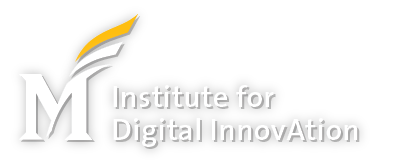IDIA Research Spotlight: Myeong Lee 
Myeong Lee is an Assistant Professor of Information Science and the Director of the Community Informatics Lab (CIL) in the Department of Information Sciences and Technology. Through research, he aims to contribute to civic engagement, policy-making, socio-technical systems theories, and information access. He was a Data Science for Social Good (DSSG) fellow at Georgia Tech and the University of Washington, respectively. Also, he served as a Data Science & Technology Fellow at The Center for Open Data Enterprise, a non-profit based in Washington D.C. that advocates for open data movements, where he led the development of the Open Data Impact Map and advised the SDG National Reporting Initiative on technological strategy. Before that, he was a Co-founder and the Director of Software Development at Torooc Inc., a VC-funded emotional robot start-up, based in South Korea. He received a PhD in Information Studies from the University of Maryland at College Park, and a MS in Software Engineering and a BS in Electrical Engineering from Seoul National University.
The Institute for Digital InnovAtion spoke with Lee about his research and the Community Informatics Lab (CIL). Responses have been edited.
__________________________________________________________________
Tell us about your research.
My research is on data science for social good, which aims to help solve social and information problems through data-driven approaches. I am particularly interested in understanding the dynamics of local communities, technology-enabled groups, and information inequality by leveraging social theories and computational methods.
Due to the nature of research domains and subjects, it is often essential to team up with community-based organizations and local municipalities, along with researchers with diverse perspectives. This research direction is also closely related to the Smart and Connected Communities agenda, because those problems can sometimes be addressed by designing and embedding novel technologies in online and offline settings.
In the Community Informatics Lab (CIL) that I am leading, researchers with diverse expertise and backgrounds work together to fulfill the missions of scientific advancement and community well-being.
What kinds of projects are funded?
My first lead-authored proposal was funded by the NSF Cyber-Human Systems program when I was in my candidacy in the doctoral program, which will end in 2022. This project aims to understand the information deserts of non-emergency civic issues in the City of Boston by computationally modeling and analyzing individual-level 311 data for six years. The information deserts framework helps understand the moderating roles of civic technologies in the provision of public services. This theoretical framework was developed through my dissertation work.
A recently-funded project is the dashboard design project for increasing the regional capability of DMV jurisdictions in coordinating with each other during the COVID-19 pandemic. This project was designed to understand local jurisdictions’ policies and residents’ technology use patterns by analyzing their 311-like data and having workshop sessions with 311/911 leaders. The initial efforts of this project were supported by NSF CIVIC Innovation Challenge’s planning grant (S&CC program). The team of researchers, municipalities, and non-profits strives to design a community-informed civic tech playbook that can be used as a viable resource for the diverse actors in the region.
Another project funded by 4VA aims to understand how local groups are organized and thrive through online platforms using AI and machine learning techniques. In this project, our team of researchers and students are developing advanced machine learning models and theory-driven features to understand the impact of AI on people’s gathering patterns. 4VA supports collaboration across Virginia-based universities.
Overall, my funded projects are about understanding the impact of technology on local communities and providing visualization systems that promote stakeholders’ capability to make data-informed decisions. Particularly, the projects focus on (1) the information inequality and equity issues embedded in civic technologies, (2) the roles of AI in local dynamics, and (3) socio-technical solutions that could fill the information and communication gaps that stem from the fragmentation of local information infrastructures.
How do your projects impact other disciplines?
Local community and social-good issues can be addressed only through multi-disciplinary collaborations, as they present complex combinations of different problems. The projects about civic technologies and local groups not only contribute to the field of Information Science, but also provide theoretical and methodological implications for disciplines such as Sociology, Management, Public Policy, and Civil Engineering, because the problems are closely related to optimizing solutions, identifying moderating roles of technology, and improving information/technology policies.
What projects would you like to be reached out to for potential collaborations?
All the projects mentioned above are open for collaboration with diverse researchers. Because both 311 and local gatherings data present spatio-temporal dimensions and thematic and social nuances, I believe there will be a high synergy with diverse researchers, as they will provide new perspectives on the theories, methodologies, and practices.
What keywords describe your research?
Community informatics, data science for social good, socio-technical systems, urban computing, civic technology
How can you be reached?
Email: mlee89@gmu.edu
Website: https://myeonglee.com
LinkedIn: https://www.linkedin.com/in/myeonglee/
Twitter: https://twitter.com/deeperlee

